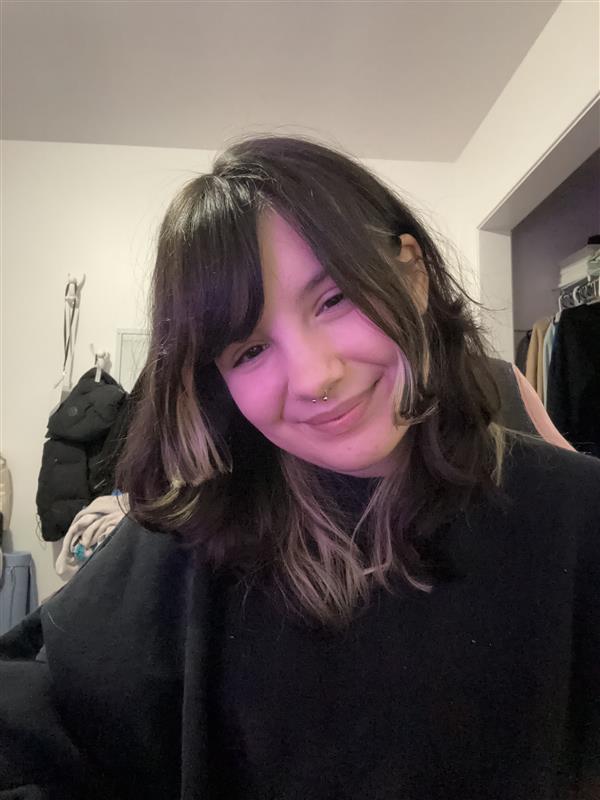There isn’t a doubt that Arwen Cooke carries their identification as an Indigenous individual with delight and resilience.
“It comes with struggles, however I don’t ever really feel ashamed of who I’m,” Arwen says.

Arwen Cooke, YAC Co-Chair, CMHO
Arwen, a 21-year-old psychology pupil who identifies as two-spirit, is a part of the Otter clan. They dream of turning into a rural household physician, impressed by their uncle, a journey nurse who usually supported distant Indigenous communities. From his tales, Arwen discovered in regards to the poor well being outcomes Indigenous households face when looking for care. Their very own struggles to seek out help for anxiousness deepened that consciousness and finally led Arwen into advocacy — now serving as Co-Chair of CMHO’s Youth Advisory Council and a proud voice with The New Mentality.
“I’ve an enormous coronary heart, and my guideline is respect and compassion,” Arwen says.
Reflecting on Fact and Reconciliation
For Arwen and their household, Nationwide Fact and Reconciliation Day hits near house. Arwen is the primary era of their household to not attend a day college and the third era faraway from a residential college.
Day colleges had been one of many authorities’s earliest instruments of assimilation, earlier than residential colleges grew to become widespread within the late nineteenth century. Though day-school college students returned house at night time, they had been nonetheless uncovered to the identical abuses as these in residential colleges.
Arwen grew up listening to firsthand how this method formed their household. However it was their great-grandmother’s expertise in residential college that left the strongest imprint.
“My large gran’s weakening reminiscence could have held up longer if it weren’t for the violence she obtained by the hands of the nuns who punished her for talking the one language she knew.”
As Canada marks Fact and Reconciliation Day this September 30, Arwen urges individuals to do not forget that a lot of the 94 Calls to Motion from the Fact and Reconciliation Fee stay unfinished. “Past my private phrases, the largest useful resource I might level to is these 94 calls to motion and the Nationwide Centre for Fact and Reconciliation.”
Expertise and Psychological Well being
Arwen is open about how intergenerational trauma formed their very own psychological well being. “I used to be served a hand that predisposed me for anxiousness,” they clarify. Discovering skilled help was practically unimaginable.
“Being understood as an Indigenous youth by knowledgeable felt like Mission Inconceivable. And even when it was potential, the medical health insurance many Indigenous individuals depend on isn’t sufficient for greater than a pair classes. After that, you’re prone to sit on a waitlist for years.”
On the identical time, Arwen’s tradition stored them grounded — by teachings on wholesome emotional expression, the help of a giant household community, and a deep connection to the land.
Throughout a extreme psychological well being disaster, one the place Arwen may really feel their coronary heart pounding by their chest virtually day-after-day, they reconnected with their Otter clan identification by water.
“I used to be out day-after-day, both swimming or kayaking. Even within the winter, I used to be nonetheless within the open water. It helped, and it seems my Elders had been proper about getting outside.”
But helps rooted in tradition are sometimes the primary to be misplaced. “Businesses in my neighborhood that had been Indigenous-run misplaced their funding. It’s irritating as a result of we all know the companies labored. They had been getting individuals sober, educating new expertise, and strengthening communities, however with out funding, the doorways closed.”
Voices, Methods, and Change
Arwen believes significant change begins with extra inclusivity, security, and accessibility.
“There’s a lot racism within the psychological well being and well being industries, and it solely takes one unhealthy expertise to earn somebody’s mistrust.”
They argue because of this many Indigenous youth stay cautious of Western methods. The answer, they imagine, lies in bringing tradition and care collectively: hiring extra Indigenous practitioners, involving Elders and knowledge-keepers, and funding community-based companies.
“Get your self into the communities, rent Indigenous practitioners and youth, and do your analysis and studying on our historical past.”
A historical past, Arwen believes, that’s simply as related within the current because it was prior to now.
Hopes and Futures
As a pupil, Arwen finds hope of their friends, each Indigenous and non-Indigenous, who’re keen to grasp and create change.
“We’re in dire want of extra Indigenous individuals in each area, particularly healthcare. Seeing my friends so open to studying and so dedicated to our worldviews offers me hope.”
For Arwen, Fact and Reconciliation just isn’t a one-day observance however an on a regular basis alternative. Their dream is straightforward however profound: a Canada the place prejudice and racism now not exist; the place each Canadian is aware of the historical past of residential colleges; and the place Indigenous youth, and all kids, can pursue their objectives with out obstacles.
“True reconciliation isn’t one thing we do for recognition or as a result of now we have to — it’s one thing we do as a result of we need to. It’s not about phrases however about making a future the place Indigenous youngsters can thrive with out their race being a roadblock or a purpose for harm.”


